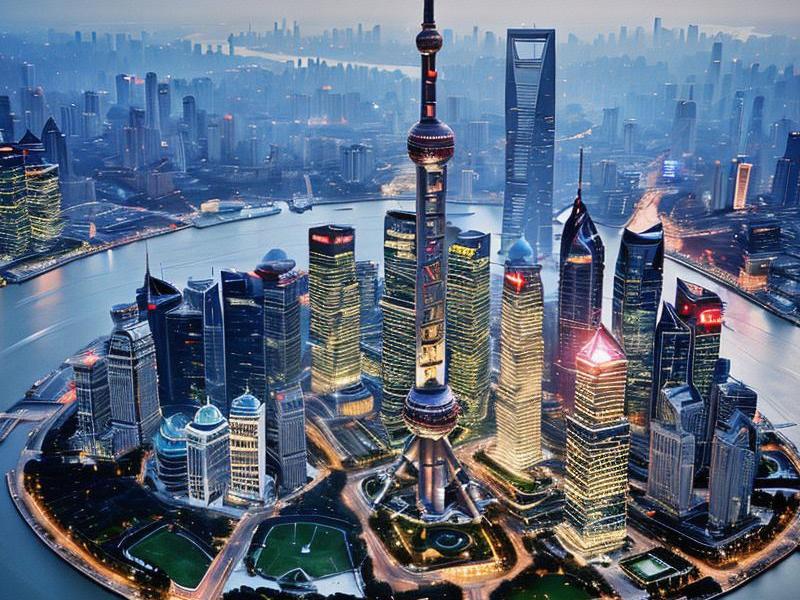
In recent years, Shanghai has solidified its reputation as a global financial center, but its ambitions extend far beyond finance. The city is now at the epicenter of China's push towards high-quality economic development, driven by innovation, technological advancement, and urban renewal.
One of the most significant aspects of Shanghai's transformation is its focus on high-tech industries. The city has established several state-level high-tech zones, such as Zhangjiang Hi-Tech Park and漕河泾新兴技术开发区 (Chuancheng New Technology Development Zone), which have become incubators for cutting-edge technologies like artificial intelligence, biotechnology, and new energy. These zones attract both domestic and international companies, fostering a vibrant ecosystem of innovation.
The government has also been proactive in supporting startups and entrepreneurs. Programs like the Shanghai Entrepreneur Public Training Base provide resources and mentorship to young entrepreneurs, helping them turn their ideas into viable businesses. This initiative has been instrumental in nurturing a new generation of tech-savvy business leaders who are driving the city's economic growth.
In addition to technological innovation, Shanghai is also making strides in environmental sustainability. The city has set ambitious goals to reduce carbon emissions and improve air quality. Initiatives such as the construction of green buildings, the promotion of electric vehicles, and the expansion of public transportation networks are all part of this effort. For instance, the city's rapid transit system has seen significant expansion, with new lines and stations being added regularly to accommodate the growing population and reduce reliance on private vehicles.
上海龙凤419自荐 Cultural innovation is another area where Shanghai is making notable progress. The city has a rich history and a vibrant cultural scene, and it is leveraging this heritage to attract tourists and foster creativity. The Bund and 外滩源 (The Bund Source), a historic area along the Huangpu River, have been revitalized with modern architecture and cultural events. These areas now serve as symbols of Shanghai's blend of tradition and modernity.
The internationalization of Shanghai is also evident in its efforts to become a global hub for education and research. The city has established partnerships with leading universities around the world, attracting top-tier talent and fostering academic exchange. Institutions like Fudan University and Tongji University are at the forefront of research in various fields, contributing to the city's reputation as a center of knowledge and innovation.
However, Shanghai's journey towards becoming a global leader in innovation and development is not without challenges. One of the main issues is the high cost of living and doing business in the city. The rapid pace of urbanization has led to increased property prices and competition for talent. To address these challenges, the government has implemented policies aimed at making the city more livable and business-friendly. These include measures to control housing prices, improve public services, and streamline administrative procedures.
上海水磨外卖工作室 Another challenge is the need to balance economic growth with environmental sustainability. While the city has made significant progress in reducing pollution and promoting green technologies, there is still a long way to go. The government is investing heavily in renewable energy and sustainable urban planning to ensure that Shanghai remains a livable and attractive city for future generations.
The integration of digital technologies into various aspects of urban life is also a key focus for Shanghai. The city is a leader in the development of smart cities, leveraging big data, artificial intelligence, and the Internet of Things (IoT) to improve public services and enhance the quality of life for its residents. For example, the Shanghai Smart City Project involves the deployment of sensors and data analytics to optimize traffic management, energy consumption, and waste disposal.
In the realm of international relations, Shanghai continues to play a crucial role as a bridge between China and the rest of the world. The city hosts numerous international conferences, trade fairs, and cultural exchanges, fostering global cooperation and understanding. The 上海合作组织 (Shanghai Cooperation Organization, SCO) and the China International Import Expo (CIIE) are just two examples of the many platforms that Shanghai uses to promote international dialogue and economic collaboration.
上海龙凤阿拉后花园 The future of Shanghai looks promising, with its commitment to innovation and sustainable development setting it apart as a model for other cities in China and around the world. The city's ability to adapt to changing circumstances and embrace new opportunities will be key to its continued success.
In conclusion, Shanghai's journey towards becoming a global hub for innovation and development is a testament to the city's resilience and vision. By focusing on high-tech industries, environmental sustainability, cultural innovation, and internationalization, Shanghai is not only enhancing its own prospects but also contributing to China's broader goals of modernization and global leadership. As the city continues to evolve, it remains a beacon of progress and a symbol of China's aspirations for a brighter future.
